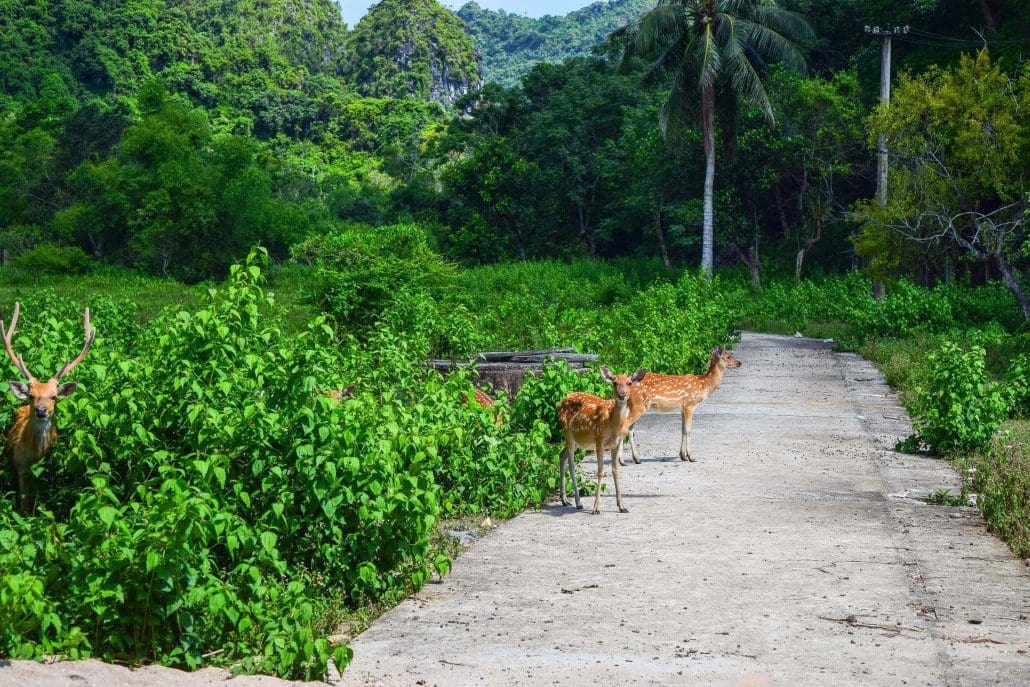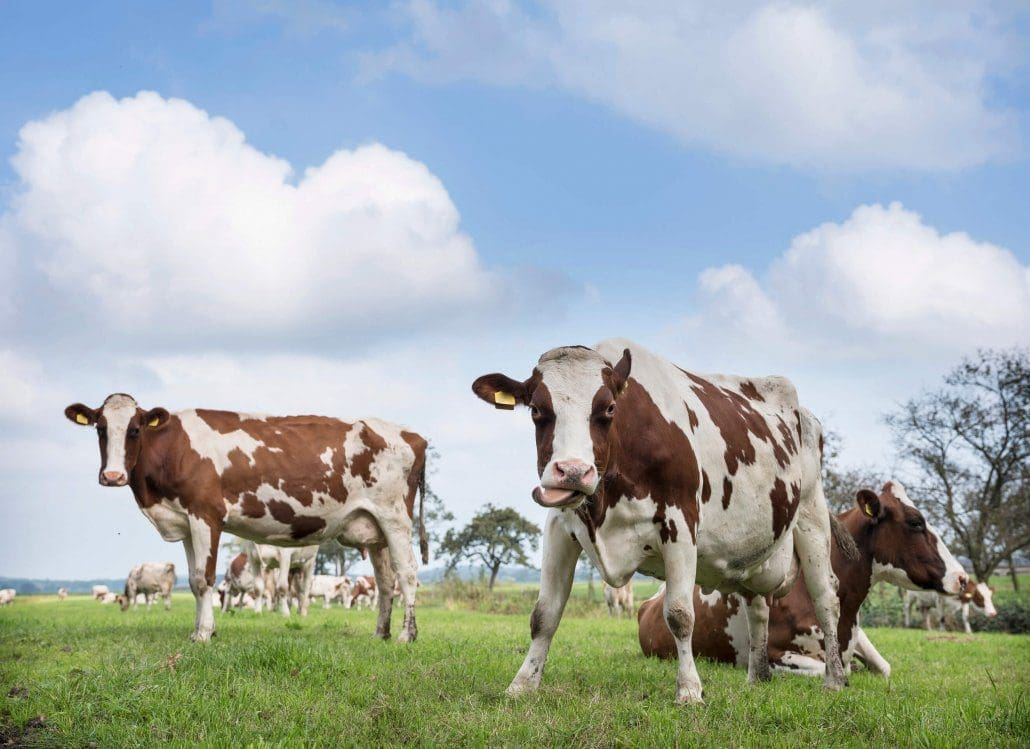WHO IS LIABLE FOR DAMAGES?
GET A FREE LEGAL CONSULTATION
Hitting an animal with your vehicle can be a traumatic event. These collisions can cause serious damage to anyone in the vehicle, the vehicle itself, and the animal that was struck. If you have hit an animal on the road you may find yourself wondering: who is liable for the damages and how should you report the incident.
There are countless variables that can impact how fault is determined in any car accident. Striking an animal is no different. Liability for damages caused by hitting an animal can differ depending on the specific incident and whether or not the animal was domestic or wild.
A car accident lawyer can help you determine who is liable for an accident involving an animal and what your legal options are moving forward.
WHAT TO DO AFTER HITTING AN ANIMAL
You are driving down the road and suddenly an animal steps into the road, giving you no time to avoid the collision. What do you do after hitting an animal with your vehicle?
PULL OVER AND TURN ON YOUR HAZARDS ON
The first thing to do after you have hit an animal with your car is to pull over to a safe area if possible. Put your hazard lights on to warn oncoming cars of a potentially dangerous condition on the road. Making your car and the accident more visible can help prevent other cars from crashing.
CHECK FOR INJURIES
Once your car is safely parked, check yourself and any other passengers for injuries. Contact emergency medical services right away if you or any passengers have been seriously injured.
CHECK ON THE ANIMAL
There is no state law in Florida that requires a driver to stay at the scene of an accident where they struck an animal. However, it is always in your best interest to stay on the scene until authorities arrive to make a report. Leaving the scene of an accident where an animal has been injured but is still alive can result in animal cruelty charges.
Cautiously approach the animal to see whether or not the animal is injured or has been killed. Remember that injured or frightened animals can often be dangerous and you should not get too close.
DOCUMENT THE ACCIDENT
Be sure to document as much information about the accident as you can if you are physically able to. Begin with taking pictures of any damage to your vehicle and injuries you or other passengers have sustained. You should also take pictures of the animal and the scene of the accident.
It is also a good idea to file a police report and obtain a copy for your records. Collect witness statements and witness contact information if any witnesses were present. You should also get the contact information of the animal’s owner if you hit a domestic animal. This information can help strengthen your case if you need to make a claim or protect you if a claim is made against you.
MAKE A CLAIM
You may need to file a claim for injuries or damages suffered after hitting an animal with your vehicle. A claim can usually be filed with your own insurance company or against the owner of an animal you hit. The owner of an animal can be held liable for a car accident if the animal caused the accident.
WHO IS LIABLE FOR DAMAGES AFTER HITTING AN ANIMAL?
Liability for damages after hitting an animal with your vehicle can depend on the type of insurance coverage you have and the animal that you hit. Was the animal wild? Did the animal have an owner or was it livestock? These are important questions to answer after striking an animal with your car.

HITTING A WILD ANIMAL
One of the most common animal-related accidents drivers experience is hitting a wild animal, such as a deer. Large wild animals (deer, moose, large birds, and coyotes) can cause serious damage to your vehicle, your passengers, and yourself in an accident.
These animals are fast and often startle easily when standing near a road with fast-moving traffic. Drivers are often left with little to no time to avoid a collision when a wild animal darts out in front of their car. Fortunately, insurance companies tend to view these accidents as unavoidable.
Having comprehensive coverage for your vehicle can protect you in the event you hit a wild animal. Comprehensive coverage protects your vehicle against any damage caused by random, unpredictable events, such as a deer jumping in front of your car. It should be noted that drivers who do not have comprehensive coverage may end up paying for the damages out-of-pocket.
Filing a police report is always a good idea if you have hit a wild animal and damaged your vehicle. Your insurance carrier may not require a police report for you to file a claim but the report can make the claim process easier. A police report can also protect you from insurance companies trying to deny the accident actually happened.

HITTING LIVESTOCK
Hitting an animal with your vehicle can become more complicated if that animal is livestock, such as a cow, horse, sheep, or goat. Laws governing how livestock need to be kept can vary from state to state. Some states may require livestock to be fenced in and away from roads while others allow livestock to roam free.
Florida statutes require that any and all livestock be fenced in. Livestock should not be allowed to roam freely over any roadways.
The owner of the livestock can be held liable for an accident involving their animal if they were found to be negligent in the animal getting out of its fence. This could be from the livestock owner failing to maintain a proper fence for their animals or forgetting to latch the gate to an enclosure. However, the owner of livestock may not be held responsible if the animal you hit got out because someone else had tampered with the fence.
You should always file a police report if you strike livestock with your vehicle. Drivers that leave the scene after hitting an animal belonging to someone else can be charged with a hit-and-run crime.
Filing a police report helps ensure that the animal gets help if it is injured and that the owner of the animal is found. A police report can also help you if you need to file a claim against the livestock owner for damages or injuries suffered.

HITTING A DOMESTIC ANIMAL
Hitting an animal with your car can be tough to deal with, especially when that animal is someone’s beloved pet. Striking a domestic animal with your car can make determining liability more complicated. Domestic animals are often considered part of the family and the loss of such an animal can be devastating to the people that owned that animal.
Similar to livestock, different states have different laws governing who is liable for an accident where a domesticated animal is hit. The owner’s potential liability may depend on whether or not state or local laws require that their animal is kept either on a leash when off the owner’s property or kept fenced in on the property.
Owners may not hold liability for an accident involving a domesticated animal if they are not legally required to keep the animal leashed or fenced in. The owner is usually held responsible for their animal being hit by a vehicle if the law requires the animal to be leased and the animal was not.
The driver can be held responsible for the accident and any injuries to the animal if it is found that they could have taken action to avoid the accident. Driver’s may even face some level of comparative fault if they could have avoided the accident even if the animal was not leased when it should have been.
As with hitting livestock and leaving the scene, you can be charged with a hit-and-run if you hit a domesticated animal with your car and flee the scene. Be sure to file a police report after striking a domesticated animal. It is the right thing to do and could potentially save the animal’s life. Remember that a police report can also help you if you need to file a claim later.
A CAR ACCIDENT ATTORNEY CAN HELP
If you have been injured or suffered property damage after hitting an animal in Florida, you should consider speaking with a car accident lawyer after reporting the accident. The laws that govern liability after crashing into an animal can be complicated and can be used against you if you do not have a good working knowledge of them.
Car accident attorneys have an excellent understanding of state and local laws that govern accidents where an animal has been hit. Your attorney can help you file a claim with your own insurance company if they are unwilling to pay for the damages you have suffered, even if you were not at fault. An attorney can also help you pursue compensation from the owner of livestock or a domesticated animal that should not have been on the road before your accident.
Drivers who have hit an animal with their vehicle have nothing to lose in contacting a car accident lawyer. Most attorneys offer a free case evaluation. During this evaluation, your lawyer can let you know if you have a case worth pursuing and what your legal options are going forward.
